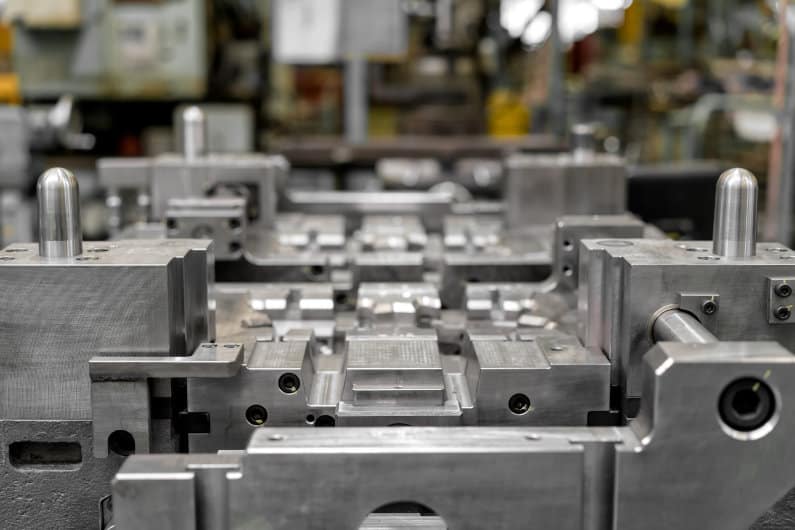Introduction
Precision aluminum casting molds play a crucial role in the manufacturing industry by enabling the production of high-quality aluminum parts with complex geometries and tight tolerances. These molds are designed to ensure superior manufacturing results, contributing to the overall efficiency and success of the production process. In this article, we will explore the key factors involved in creating precision aluminum casting molds and the benefits they offer in manufacturing.
Designing Precision Aluminum Casting Molds
The first step in creating precision aluminum casting molds is designing the mold to meet the specific requirements of the desired aluminum part. This involves considering factors such as the part\’s dimensions, shape, and surface finish. The mold design should incorporate features that facilitate the easy flow of molten aluminum, ensuring uniform filling and minimizing the risk of defects or porosity in the final part.
To achieve precision in the mold design, advanced computer-aided design (CAD) software is employed. These tools allow engineers to create highly detailed and accurate 3D models of the mold, ensuring that every aspect of the design is optimized for the manufacturing process. CAD software also enables the simulation of molten metal flow, helping in identifying and resolving any potential issues before the mold is manufactured.
Manufacturing Precision Aluminum Casting Molds
Once the mold design is finalized, the next step is manufacturing the precision aluminum casting mold. The mold is typically made from high-quality materials with excellent thermal conductivity to ensure efficient heat transfer during the casting process. Common materials include steel and aluminum alloys, chosen for their durability and resistance to wear and tear.
There are various manufacturing techniques used for creating precision aluminum casting molds. These include traditional machining processes such as milling, turning, and drilling, as well as advanced techniques like electrical discharge machining (EDM) and computer numerical control (CNC) machining. Each technique offers unique advantages and is selected based on factors such as the complexity of the mold design, accuracy requirements, and production volume.
Benefits of Precision Aluminum Casting Molds
Precision aluminum casting molds offer several benefits in the manufacturing industry, including:
1. Improved Product Quality: The use of precision molds ensures that the aluminum parts produced have consistent dimensions, surface finish, and overall quality. This helps in reducing rejections, improving product reliability, and meeting customer expectations.
2. Cost-Effective Production: Precision molds enable efficient and repeatable manufacturing processes, minimizing material waste and reducing the need for costly rework. The accurate mold design and manufacturing techniques also contribute to shorter cycle times, increasing overall productivity and reducing production costs.
3. Complex Geometries and Tight Tolerances: Precision molds allow for the production of aluminum parts with intricate designs and tight tolerances. This enables manufacturers to produce complex components that are otherwise impossible or challenging to manufacture using traditional methods.
4. Enhanced Durability: The use of high-quality materials and advanced manufacturing techniques ensures that precision aluminum casting molds have excellent durability and longevity. This reduces the need for frequent mold replacements, saving both time and money.

Conclusion
Creating precision aluminum casting molds is a critical aspect of the manufacturing process, enabling the production of high-quality aluminum parts with complex geometries and tight tolerances. The design and manufacturing of these molds require careful consideration of various factors to ensure superior manufacturing results. The benefits offered by precision molds include improved product quality, cost-effective production, the ability to manufacture complex parts, and enhanced durability. By investing in precision aluminum casting molds, manufacturers can achieve higher efficiency, reduce costs, and meet the demands of a competitive market.
-

- OEM Die tökmə istehsalçısı uşaqlar təkan velosipedi üçün maqnezium lehimli təkər istehsal edir
-

- OEM tökmə hissələri və komponentləri
-

- Maqnezium tökmə hissələri Sükan sütunu
-

- Maqnezium ərintisi tökmə hissələri CNC emal və səthi bitirmə ilə velosiped təkəri
-

- CNC machined parts Steering bracket
-

- Maqnezium ərintisi tiksomolding kalıp tökmə İHA hissələri

 0086-750-5616188
0086-750-5616188 +86 13392089688
+86 13392089688 sales@zhongmei-tech.com
sales@zhongmei-tech.com







